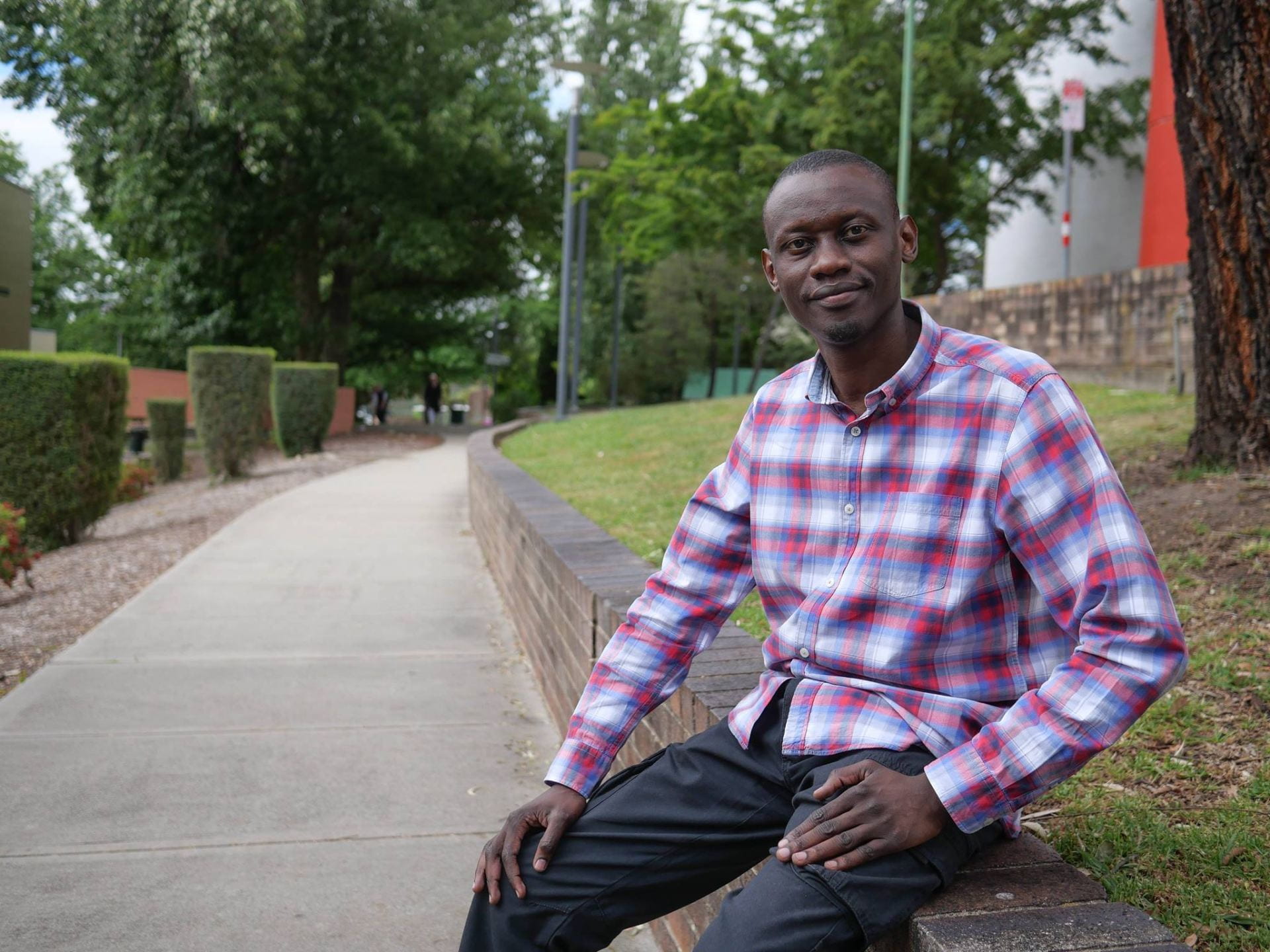Celebrating International Volunteer Day 2019 – 5 December
UNE Peace Studies PhD candidate John Ahere, from Kenya, is dedicated to working for transformative change across Africa for lasting conflict resolution. While his thesis is focused on the role of political parties in the management of political violence, he also knows first-hand the importance volunteering plays in peace-building.
Volunteering can start anywhere. For John, it started in Tanzania at a trade fair during his second year of undergraduate studies in 2002.
“I volunteered with the Tanzania Red Cross Society, which was offering support at the Dar es Salaam International Trade Fair. I was tasked with, among other things, looking out for potential hazards, assisting children and parents who had been lost from each other, providing water, etc.,” he says.
This experience helped him appreciate the role of volunteers and pursue further volunteering opportunities to help make a difference.
“After completing my studies in September 2004, I volunteered with a non-government organisation (NGO) in South Sudan. My role was to provide administrative and logistical assistance to enable the NGO and its partners to implement an advocacy and lobby project aimed at supporting the process that led to the Sudan Comprehensive Peace Agreement signed in January 2005.”
The role also led to some unexpected highlights.
“The highlight of my volunteering was meeting Dr John Garang in December 2004. He was the leader of the rebel Sudan People’s Liberation Movement/Army who would later become the first president of South Sudan. I had heard so much about his indefatigable efforts to enable South Sudanese to obtain self-determination after decades of marginalisation from the Sudan government.”
Overall, John says volunteering gave him deeper insight into the issues that face many countries, which has been invaluable in his conflict management and resolution work across 12 African countries.
“Through volunteering, I was thrust into the deep end of how society functions and the problems that real people experience. I was able to relate to problems that generally plague society, beyond myself, and work with others on what could collectively be done to alleviate the problems.
“Volunteering is a way of inculcating values of selflessness in society. When one volunteers, they do not think of themselves but rather about the society in general. It empowers individuals to consistently think about helping others without anticipating profits in return.”
Which is important for peace.
“A society in which most of its members think more about ‘we’ as opposed to ‘me’ is one that is more likely to be generally peaceful. Volunteering, in many cases, may tame the vice of greed which often fuels violent conflicts between members of society,” John says.
“Volunteering also enables volunteers and its beneficiaries to relate to each other through acts of dignity. There are societies in which people do not have a sense of dignity. In such societies, violence, as opposed to dialogue, is often a normal part of how problems are solved.
“When people learn to relate with dignity, they pass it onto others they relate with later. This creates a critical mass of people who understand the value of dignity to the human being.”



Glad to learn that my old student has earned Ph.D. Well done John
Thank you mwalimu. I am because you are.
Hongera kasin. We thank God for this far he has brought you. May he continue to direct your footsteps.
Wonderful! I am now better equipped to encourage volunteering
Keep up the good work and very informative